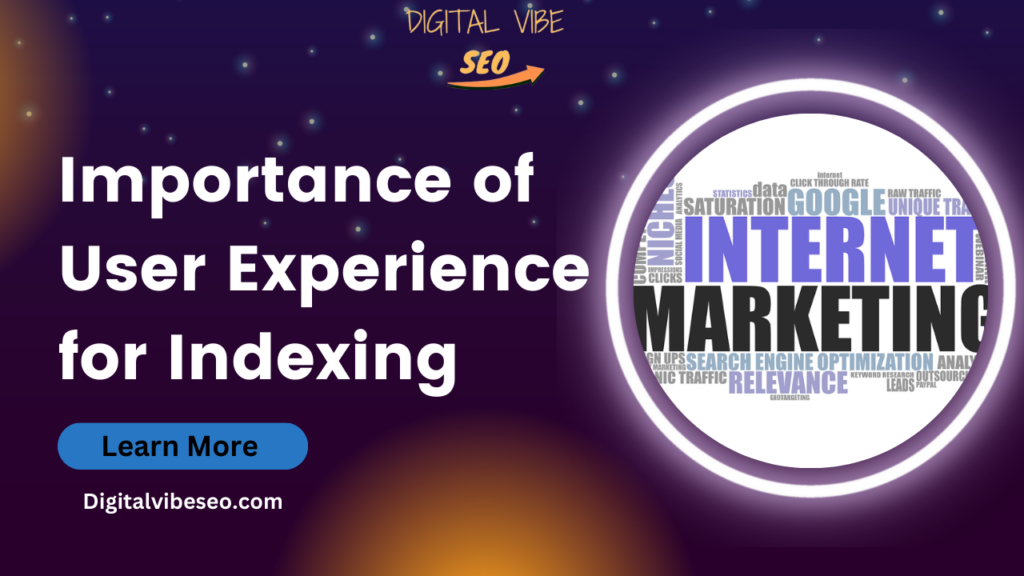
Table of Contents
ToggleIntroduction
Having your website crawled but not indexed is a common issue that can be frustrating for website owners. It means that search engines like Google are visiting your site and reading its content, but not including it in their search index. This can significantly impact your site’s visibility and ability to attract organic traffic. Understanding why this happens and how to fix it is crucial for effective SEO.
Understanding the Difference Between Crawling and Indexing
To address the issue of being crawled but not indexed, it’s important to understand the difference between crawling and indexing. Crawling is the process by which search engines discover your web pages. Indexing, on the other hand, is when these pages are stored in the search engine’s database. If your pages are crawled but not indexed, they won’t appear in search results, no matter how relevant they are.
The Role of Crawl Budget in Being Crawled but Not Indexed
The crawl budget refers to the number of pages a search engine will crawl on your site within a specific timeframe. If your site exceeds its crawl budget, some pages might be crawled but not indexed. Ensuring efficient use of your crawl budget by optimizing your site’s structure and prioritizing important pages can help mitigate this issue.
Importance of High-Quality Content in Indexing
High-quality content is essential for indexing. Pages that are crawled but not indexed often lack unique, valuable content. Search engines aim to provide users with the best possible results, so they prioritize indexing pages with original, informative, and engaging content. Improving the quality of your content can increase the likelihood of your pages being indexed.
Impact of Duplicate Content on Being Crawled but Not Indexed
Duplicate content can lead to pages being crawled but not indexed. When search engines detect similar or identical content on multiple pages, they may choose to index only one version. To avoid this, use canonical tags to indicate the preferred version of a page and ensure that your content is unique and differentiated.
Role of Robots.txt in Crawling and Indexing
The robots.txt file controls which parts of your site search engines can crawl. Misconfigurations in this file can result in important pages being crawled but not indexed. Check your robots.txt file to ensure it doesn’t block search engines from accessing and indexing your valuable content.
Effect of Noindex Tags on Indexing
Noindex tags instruct search engines not to index a specific page. If your pages are being crawled but not indexed, check for noindex tags in your HTML code. Removing unnecessary noindex tags from important pages can help ensure they are included in the search index.
Importance of Internal Linking for Indexing
Internal linking helps search engines navigate your site and discover new content. Pages with poor internal linking may be crawled but not indexed due to their isolation. Enhance your internal linking strategy by linking relevant pages together, ensuring that all important content is easily accessible to search engines.
Impact of Page Load Speed on Being Crawled but Not Indexed
Page load speed is a crucial factor in indexing. Slow-loading pages can be crawled but not indexed because they provide a poor user experience. Optimize your site’s performance by compressing images, minifying CSS and JavaScript, and using a content delivery network (CDN) to improve load times and increase the likelihood of indexing.
Role of Mobile-Friendliness in Indexing
With the rise of mobile-first indexing, ensuring your site is mobile-friendly is essential. Pages that are not optimized for mobile devices may be crawled but not indexed. Use responsive design and test your site’s mobile usability to ensure it meets search engine standards, improving its chances of being indexed.
Importance of HTTPS for Indexing
Search engines prioritize secure sites. If your site is not using HTTPS, it may be crawled but not indexed. Implementing HTTPS by obtaining and installing an SSL certificate can enhance your site’s security, trustworthiness, and indexing potential.
Effect of URL Parameters on Being Crawled but Not Indexed
Complex URL parameters can create multiple versions of the same page, confusing search engines and leading to pages being crawled but not indexed. Simplify your URLs and use canonical tags to indicate the preferred version, ensuring search engines index the correct pages.
Impact of Low-Quality Backlinks on Indexing
Backlinks from low-quality or spammy sites can negatively impact indexing. Pages with poor backlink profiles may be crawled but not indexed due to perceived lack of authority. Focus on building high-quality backlinks from reputable sources to improve your site’s credibility and indexing potential.
Role of Social Signals in Indexing
Social signals, such as shares and likes on social media, can influence indexing. While not a direct ranking factor, increased social engagement can drive traffic to your site, encouraging search engines to crawl and index your pages. Promote your content on social media to enhance its visibility and indexing likelihood.
Importance of User Experience for Indexing

A positive user experience (UX) can impact indexing. Pages with poor UX, such as difficult navigation or intrusive ads, may be crawled but not indexed. Improve your site’s UX by enhancing usability, readability, and overall design to increase the chances of being indexed.
Effect of Thin Content on Being Crawled but Not Indexed
Thin content, which provides little value to users, is often crawled but not indexed. Ensure that your pages contain comprehensive, detailed, and valuable information. Focus on quality over quantity to enhance the chances of your content being indexed.
Role of Content Freshness in Indexing
Fresh content is more likely to be indexed by search engines. Regularly updating your site with new and relevant information signals to search engines that your site is active and valuable. Maintain a consistent content update schedule to improve your indexing potential.
Importance of Structured Data for Indexing
Structured data helps search engines understand the content of your pages better. Implementing schema markup can enhance indexing by providing additional context about your content. This not only improves indexing but also enhances your appearance in search results with rich snippets.
Effect of JavaScript on Being Crawled but Not Indexed
JavaScript-heavy pages can pose challenges for search engines, leading to being crawled but not indexed. Ensure that essential content is accessible without relying on JavaScript. Use server-side rendering or dynamic rendering to provide a static HTML version of your pages to search engines.
Importance of Metadata for Indexing
Metadata, including title tags and meta descriptions, plays a crucial role in indexing. Well-crafted metadata provides a summary of your page’s content, helping search engines understand and index it effectively. Ensure your metadata is descriptive, keyword-rich, and unique for each page.
Role of External Links in Indexing
High-quality external links from reputable sources can enhance indexing. These links signal to search engines that your content is valuable and trustworthy. Focus on building a strong backlink profile by creating shareable content and engaging in ethical link-building practices.
Importance of Fixing Crawl Errors for Indexing
Crawl errors can hinder search engines from indexing your pages. Regularly check Google Search Console for crawl errors and address issues such as broken links, server errors, and URL errors. Resolving crawl errors promptly ensures smooth crawling and efficient indexing.
Effect of Domain Authority on Being Crawled but Not Indexed
Domain authority can influence indexing. New or low-authority sites may be crawled but not indexed due to a lack of trust. Build your domain authority by creating high-quality content, earning backlinks, and engaging with your audience to improve your site’s indexing potential.
Role of Content Relevance in Indexing
Content relevance is key to indexing. Pages with irrelevant or outdated content may be crawled but not indexed. Ensure your content is relevant to your target audience and aligned with current search trends. Regularly update and refine your content to maintain its relevance and indexing potential.
Importance of Site Architecture for Indexing
A well-organized site architecture is crucial for efficient indexing. A clear hierarchy with well-defined categories and subcategories helps search engines navigate your site more effectively. Simplify your site’s navigation and avoid deep URL structures to enhance indexing.
Effect of Site Speed on Being Crawled but Not Indexed
Site speed significantly affects indexing. Slow-loading pages can reduce the number of pages search engines crawl and index during their visit. Optimize your site’s performance by reducing server response times, enabling compression, and optimizing images to improve indexing.
Role of User-Generated Content in Indexing
User-generated content, such as comments and reviews, can impact indexing. High-quality, relevant user-generated content can enhance your site’s value and indexing potential. Encourage positive user engagement and manage spam to improve your content’s chances of being indexed.
Importance of Regular Audits for Indexing
Regular site audits can help identify and address issues affecting indexing. Use tools like Google Search Console and third-party SEO audit tools to monitor your site’s health. Regularly reviewing and optimizing your site ensures efficient crawling and indexing.
Conclusion: Solving the Problem of Being Crawled but Not Indexed
Addressing the issue of being crawled but not indexed requires a comprehensive approach. By understanding the factors that influence indexing, such as content quality, site structure, and technical SEO, you can take proactive steps to improve your site’s visibility in search results. Regular monitoring, optimization, and staying informed about SEO best practices are essential for ensuring that your pages are not only crawled but also indexed, driving organic traffic and enhancing your site’s performance.
FAQs- Frequently Asked Questions
What are some common reasons why pages may be crawled but not indexed?
Pages may be crawled but not indexed due to reasons such as low-quality content, thin content, or pages with duplicate or duplicate content. Additionally, issues with server configuration, or having pages that Google finds irrelevant or untrustworthy, can also prevent indexing.
How can I determine if my site’s robots.txt file is affecting indexing?
To determine if your robots.txt file is affecting indexing, check if it disallows important pages or sections. Use Google Search Console to review any crawl errors or blocked resources that might be impacting the indexing process.
Can technical issues with my website prevent pages from being indexed?
Yes, technical issues such as broken links, server errors, or incorrect configurations can prevent pages from being indexed. Ensure that your website is free from these issues and that pages are accessible to search engines.
How can I use Google Search Console to diagnose indexing issues?
Google Search Console provides tools and reports to diagnose indexing issues. Use the “Coverage” report to identify which pages are not indexed and check for any errors or warnings. The “URL Inspection” tool can also help diagnose specific page issues.
Could excessive use of JavaScript prevent my pages from being indexed?
Excessive or poorly implemented JavaScript can potentially prevent pages from being properly indexed. Ensure that critical content and navigation are accessible without relying solely on JavaScript and use tools like Google’s Mobile-Friendly Test to check for indexing issues.


